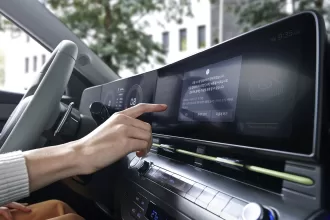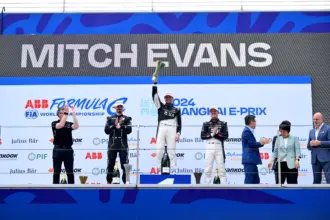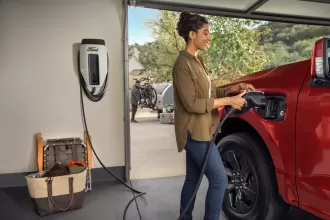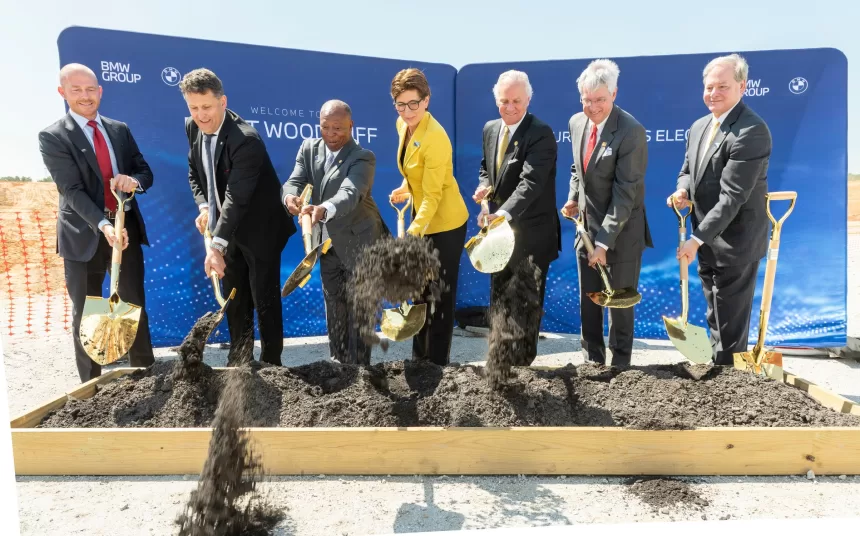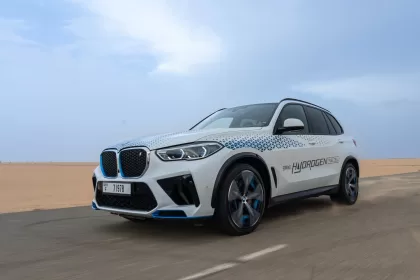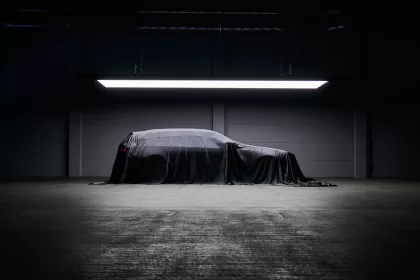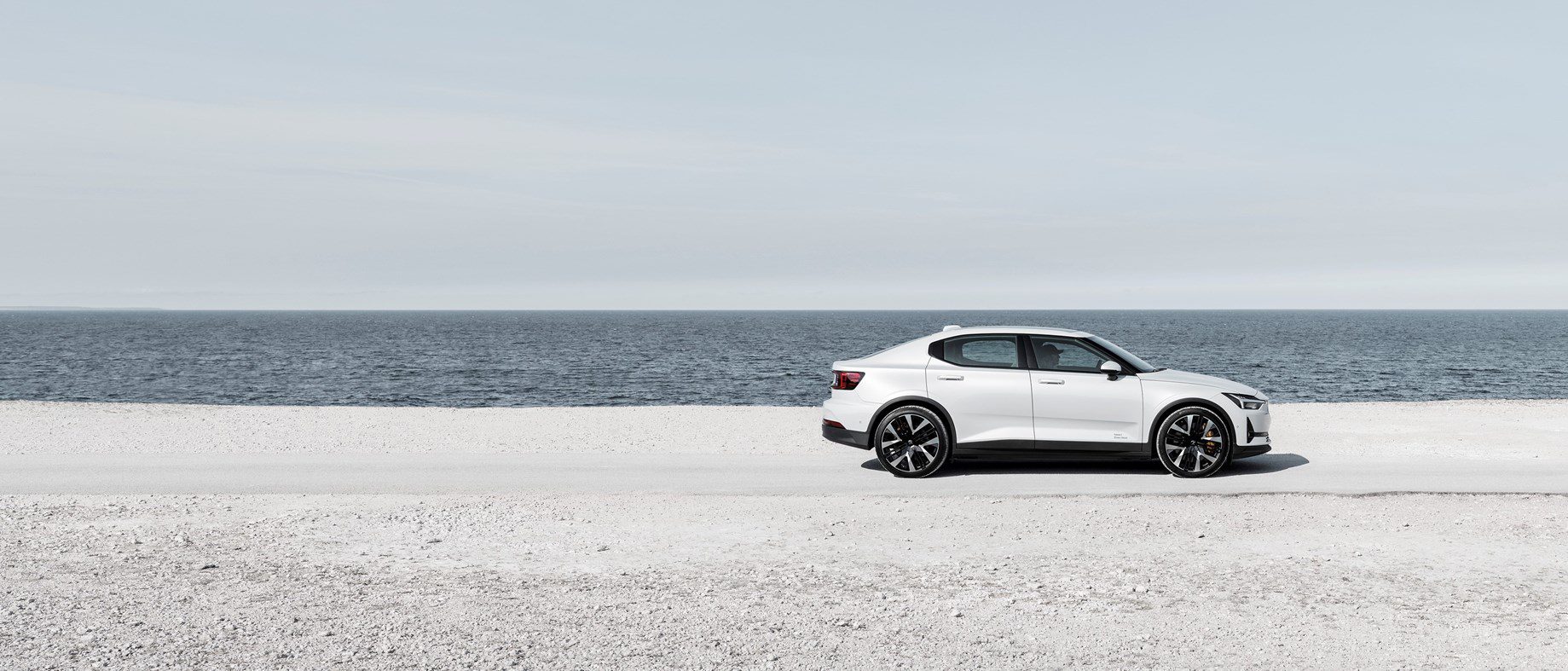- New BMW Group Plant Woodruff will produce high-voltage batteries for fully electric BMW X models at Plant Spartanburg.
- Investments of $ 700 million in the construction of the new Plant Woodruff and $ 1 billion in Plant Spartanburg in preparation for electric vehicle production
- Local for Local: short distances between cell supplier, battery assembly and vehicle production plant
The BMW Group took a major step today towards building electric vehicles in the United States as it broke ground for a new high-voltage battery assembly plant in Woodruff, South Carolina. The BMW Group Plant Woodruff will produce sixth-generation batteries to supply fully electric vehicles at nearby BMW Manufacturing in Spartanburg. More than 300 jobs will be created onsite at Plant Woodruff with the opportunity to grow.
“We’re making the BMW Group electric. Our new battery assembly plant in Woodruff will soon play an important role in our electric future here in the USA,” said Ilka Horstmeier, Member of the Board of Management of BMW AG responsible for People and Real Estate. “Through the Woodruff plant, we expand our footprint in the state of South Carolina. At the same time, we are taking our associates with us in this transformation. Our new Technical Training Center at the Spartanburg plant will prepare our 11,000 associates for the future. In this way, we are taking responsibility as a reliable employer and offer future-proof jobs at the same time.”
“Today’s groundbreaking is the start of a new era at Plant Spartanburg as we prepare to produce fully electric BMW X models for the world,” says Robert Engelhorn, president and CEO of BMW Manufacturing in Spartanburg. “The road to the future begins here in South Caronlina. Plant Woodruff will be state-of-the-art in terms of sustainability, flexibility, and digitalization.”
Extensive Investments in Plants Spartanburg and Woodruff
In October 2022, BMW Group announced a new $1.7 billion investment in its U.S. operations, including $1 billion to prepare Plant Spartanburg for the production of fully electric vehicles and $700 million to build a new high-voltage battery assembly plant. The Woodruff facility will be about 100 acres in size that includes construction of a technology building and support buildings such as a cafeteria, fire department, and energy center.
Local for Local: Short Distances between Battery and Vehicle Production.
“We are working consistently to advance the transformation to electromobility”, says Markus Fallböhmer, Senior Vice President of Battery Production at BMW AG. “Cutting-edge production facilities for top-performance high-voltage batteries are a decisive factor in this.” In expanding its production network, the company is following the principle of local for local: “Close connection of battery production with vehicle production is part of our strategy,” explains Fallböhmer.
As part of the BMW Group’s “local for local” approach, the company will purchase battery cells for its electric vehicles from partner AESC, which is building a new 30 GWh battery cell factory in Florence, South Carolina. They will produce newly developed round lithium-ion battery cells, specifically designed for the sixth generation of BMW eDrive technology. The new battery format will increase energy density by more than 20 percent and improve charging speed and range by up to 30 percent.
The BMW Group is particularly focused on keeping the carbon footprint and consumption of resources for production as low as possible, starting in the supply chain. Cell manufacturers will use cobalt, lithium and nickel that include a percentage of secondary material, i.e. raw materials that are not newly mined, but already in the loop, in production of battery cells. Combined with the commitment to use only green power from renewable energies for production of battery cells, the BMW Group will reduce the carbon footprint of battery cell production by up to 60 percent.
High Ecological Standards: Binding CO2 when pouring concrete
As the next BMW iFACTORY, BMW Group Plant Woodruff will also meet high ecological standards. The site will be operated without fossil fuels and will use 100% green electricity. The BMW Group has set itself the goal of reducing CO2 emissions in its global production network by 80 per cent by 2030 compared to 2019. Plant roofs are being prepared for the installation of photovoltaic systems. Intelligent LED lighting with motion detectors and an efficient dimming strategy reduce energy consumption and light emissions to a minimum. The high-voltage battery assembly basically requires no water. Rainwater is collected and used for purposes outside production. An innovative technology that involves injecting captured CO2 into the fresh concrete during the mixing process will be used in the construction of the plant. This sequesters CO2 permanently at a molecular level and increases the strength of the concrete.
BMW Group in South Carolina
Since 1992, the BMW Group has invested about $12.4 billion in its South Carolina operations. BMW Manufacturing is the largest BMW Group plant in the world, producing more than 1,500 vehicles each day. The plant is an important part of BMW’s global production network and plays a critical role in meeting the high demand for BMW Sports Activity Vehicles and Coupes in the U.S. and around the world. Nearly 60 percent of its vehicles are shipped to about 120 global markets, making BMW the largest automotive exporter by value in the United States for nine consecutive years. In 2022, approximately 60 percent of BMW vehicles sold in the U.S. came from Plant Spartanburg. The factory has an annual production capacity of up to 450,000 vehicles and employs more than 11,000 people.
Ongoing Commitment in the U.S.
In addition to sales and marketing operations, the BMW Group footprint in the U.S. consists of nearly 30 locations in 12 different states, including an advanced design studio, a technology research and development center, and a venture capital fund in California, BMW Group Financial Services, and BMW Manufacturing Corporation, which operates Plant Spartanburg in South Carolina. The BMW Group dealer network consists of nearly 650 independently owned BMW, MINI, Rolls-Royce and BMW Motorrad dealers nationwide. Taken together, the BMW Group’s operatons in the U.S. directly and indirectly provide and support more than 120,000 jobs in the U.S., and has contributed $43.3 billion to the U.S. economy.


